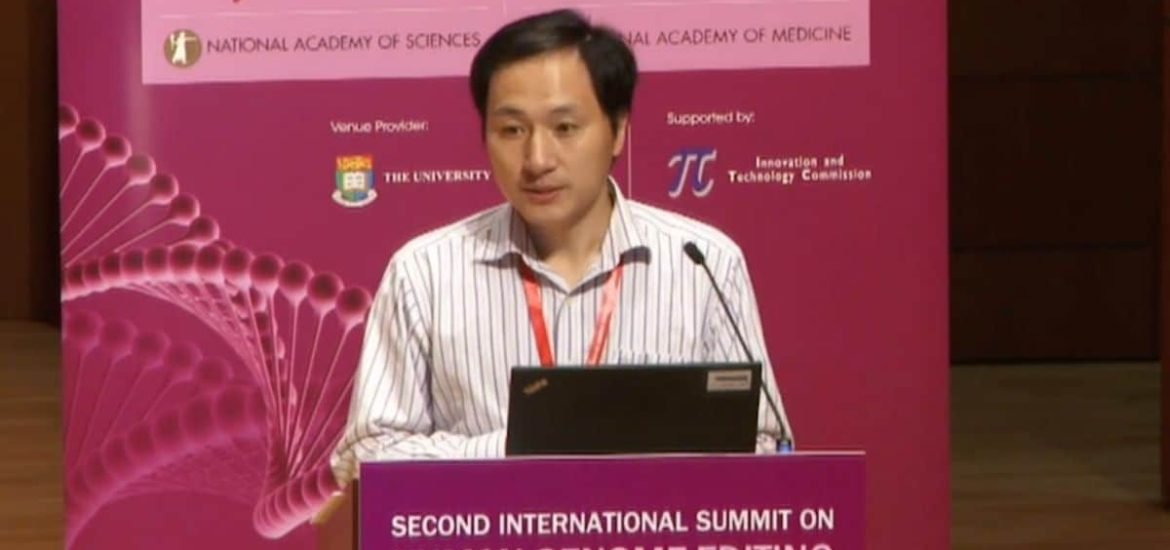
The Chinese scientist behind the gene-edited babies controversy has been sentenced to three years in jail. The court in Shenzen found scientist Jiankui He guilty of illegal practice and the biophysicist has also been fined 3 million yuan (around €383,500).
Two other scientists involved in the work received lesser sentences: Zhang Renli was sentenced to two years in prison plus a 1 million yuan and Qin Jinzhou to 18 months, with a two-year reprieve, and a 500,000 yuan fine.
The court concluded that “The three accused did not have the proper certification to practise medicine, and in seeking fame and wealth, deliberately violated national regulations in scientific research and medical treatment”, according to the state news agency Xinhua. “They’ve crossed the bottom line of ethics in scientific research and medical ethics.”
Dr He sent shock waves through the medical and scientific communities in November 2018 when he announced that his team had used CRISPR-Cas9 gene-editing technology to modify the germline of two unborn twins.
After the announcement at the Second International Summit on Human Genome Editing in Hong Kong, Dr He was fired by the Southern University of Science and Technology in Shenzhen where he was working as an associate professor at the time and placed under police investigation.
Shortly afterwards, the Chinese Academy of Science released a statement saying it is “firmly opposed” to He’s gene-editing attempts on humans. The statement also said: “Under current circumstances, gene editing in human embryos still involves various unresolved technical issues, might lead to unforeseen risks and violates the consensus of the international scientific community”.
Dr He was attempting to “vaccinate” unborn children by using CRISPR-Cas9 technology to disable the genetic pathway used by HIV to infect cells, which would purportedly leave them naturally resistant to HIV.
The twin girls, called Lulu and Nana, were born in late 2018 and news came last year of a third birth — out of a total of seven couples that received modification during fertility treatments. The women were impregnated using in vitro fertilization (IVF) with embryos in which a gene called CCR5, which encodes for a protein that allows HIV to enter cells.
The recent trial proceedings revealed that Dr He had, in fact, forged documents from an ethics review panel, which he then used to recruit couples for his research. Moreover, He’s claim was “a deliberate falsehood”, according to Prof Fyodor Urnov, a prominent cell biologist at the University of California, Berkeley. Urnov explained to MIT Technology Review that based on recently released reports of the treatment, the team have not recreated the CCR5 mutation but instead new mutations in the target gene — and possibly elsewhere in the genome of the gene-edited babies.
The consequences of such mutations remain unknown. Most experts in the field agree that gene-editing technology is too premature and too risky to pursue at present, which is why germline editing that could lead to pregnancies is banned in most countries.
Indeed, it will take many years of research to ensure that altering the genome of an embryo is safe and will not cause harm. First, important questions will need to be answered: Is the technology safe and effective? What are the long-term effects? Can these genetic modifications be passed down through the generations?